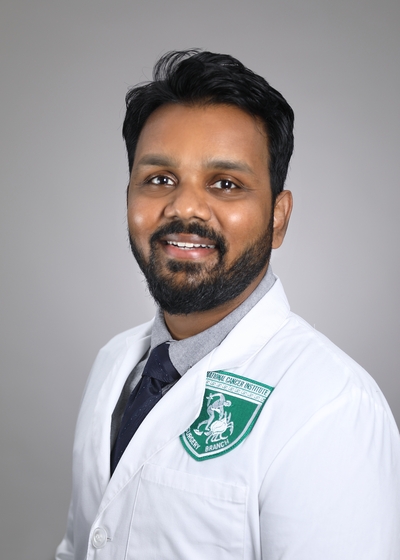
Research Topics
Metastatic solid tumors remain the leading cause of cancer deaths worldwide. Cancer immunotherapies have provided the promise of long durable regressions for some types of solid tumors. However, many metastatic solid epithelial tumors, including colon, rectal, breast, and pancreatic cancers, do not respond well to immunotherapies.
Central to the success of cancer immunotherapies including T cell-based therapies (such as ACT) lie in the 1) accurate identification of antitumor T cells, 2) overcoming profound T cell dysfunction within tumors, and 3) overcoming resistance mechanisms employed by tumors to evolve immune response. At the Surgery Branch, we have ongoing clinical protocols that evaluate the efficacy of ACT including those targeting patient tumor-specific mutations (neoantigens), which we utilize for our basic research efforts.
We aim to discover basic immune principles using systems analysis of human immune cells and patient-derived tumor models to clarify the underlying biology. Listed below are some of the broad research areas and questions within my group that address these three challenges in immunotherapy:
- Immune phenotypes targeting tumor genotypes – We are interested in studying the phenotypic states of antitumor T cells, especially those targeting tumor neoantigens in humans. These investigations include basic research studies to identify the various states that antitumor T cells can attain across space and time within a human. We believe these high-dimensional studies could unveil basic T cell immunology in the context of human tumors, and lead to the identification of neoantigen-specific T cell subsets that can be utilized for ACT.
- Understanding the limits of human T-cell dysfunction – We are interested in studying neoantigen-specific T-cell dysfunction using human patient-derived samples through the lens of genetic, epigenetic, and immune manipulation. We believe these investigations will uncover fundamental principles in T-cell differentiation lineages and lead to strategies that could be engineered for next-generation cell therapies.
- Finding and engineering the right antitumor T cell – While some human neoantigens occur within tumor hotspot mutations, most neoantigens seem to be private with unknown function. We seek to understand why that is, and what are the properties of an ideal antitumor target. We are also interested in identifying antitumor T cell receptors (for TCR therapy) against tumor drivers that are shared across patients (including against viral antigens). These studies will decipher and identify the rules that make a good antitumor target antigen in human tumors, and lead to the discovery of shared antitumor TCRs for engineered immunotherapies
Keywords: Cancer Immunology and Immunotherapy, T cell dysfunction, Adoptive Cell therapy, Cancer Vaccines, Neoantigens, TCR therapy, Gene therapy
Biography
Dr. Krishna obtained his biotechnology training from Kamaraj College, Anna University, India, and a master's degree in biotechnology from Pennsylvania State University. He subsequently completed his Ph.D. in biological design with a focus on immunology from Arizona State University. In 2018, he joined the Surgery Branch as a post-doctoral research fellow. In July 2023, he became a Stadtman Tenure-Track Investigator in the Surgery Branch.
Selected Publications
- Chatani PD, Lowery FJ, Parikh NB, Hitscherich KJ, Yossef R, Hill V, Gartner JJ, Paria B, Florentin M, Ray S, Bera A, Parkhust M, Robbins P, Krishna S, Rosenberg SA. Cell surface marker-based capture of neoantigen-reactive CD8(+) T-cell receptors from metastatic tumor digests. J Immunother Cancer. 2023;11(5).
- Lowery FJ, Krishna S, Yossef R, Parikh NB, Chatani PD, Zacharakis N, Parkhurst MR, Levin N, Sindiri S, Sachs A, Hitscherich KJ, Yu Z, Vale NR, Lu YC, Zheng Z, Jia L, Gartner JJ, Hill VK, Copeland AR, Nah SK, Masi RV, Gasmi B, Kivitz S, Paria BC, Florentin M, Kim SP, Hanada KI, Li YF, Ngo LT, Ray S, Shindorf ML, Levi ST, Shepherd R, Toy C, Parikh AY, Prickett TD, Kelly MC, Beyer R, Goff SL, Yang JC, Robbins PF, Rosenberg SA. Molecular signatures of antitumor neoantigen-reactive T cells from metastatic human cancers. Science. 2022;375(6583):877-884.
- Kim SP, Vale NR, Zacharakis N, Krishna S, Yu Z, Gasmi B, Gartner JJ, Sindiri S, Malekzadeh P, Deniger DC, Lowery FJ, Parkhurst MR, Ngo LT, Ray S, Li YF, Hill V, Florentin M, Masi RV, Paria BC, Levin N, Bera A, Hedges EA, Choi A, Chatani PD, Parikh AY, Levi S, Seitter S, Lu YC, Zheng Z, Prickett TD, Jia L, Hernandez JM, Hoang CD, Robbins PF, Goff SL, Sherry RM, Yang JC, Rosenberg SA. Adoptive Cellular Therapy with Autologous Tumor-Infiltrating Lymphocytes and T-cell Receptor-Engineered T Cells Targeting Common p53 Neoantigens in Human Solid Tumors. Cancer Immunol Res. 2022;10(8):932-946.
- Hanada KI, Zhao C, Gil-Hoyos R, Gartner JJ, Chow-Parmer C, Lowery FJ, Krishna S, Prickett TD, Kivitz S, Parkhurst MR, Wong N, Rae Z, Kelly MC, Goff SL, Robbins PF, Rosenberg SA, Yang JC. A phenotypic signature that identifies neoantigen-reactive T cells in fresh human lung cancers. Cancer Cell. 2022;40(5):479-493.e6.
- Krishna S, Lowery FJ, Copeland AR, Bahadiroglu E, Mukherjee R, Jia L, Anibal JT, Sachs A, Adebola SO, Gurusamy D, Yu Z, Hill V, Gartner JJ, Li YF, Parkhurst M, Paria B, Kvistborg P, Kelly MC, Goff SL, Altan-Bonnet G, Robbins PF, Rosenberg SA. Stem-like CD8 T cells mediate response of adoptive cell immunotherapy against human cancer. Science. 2020;370(6522):1328-1334.
Related Scientific Focus Areas
This page was last updated on Tuesday, June 10, 2025


